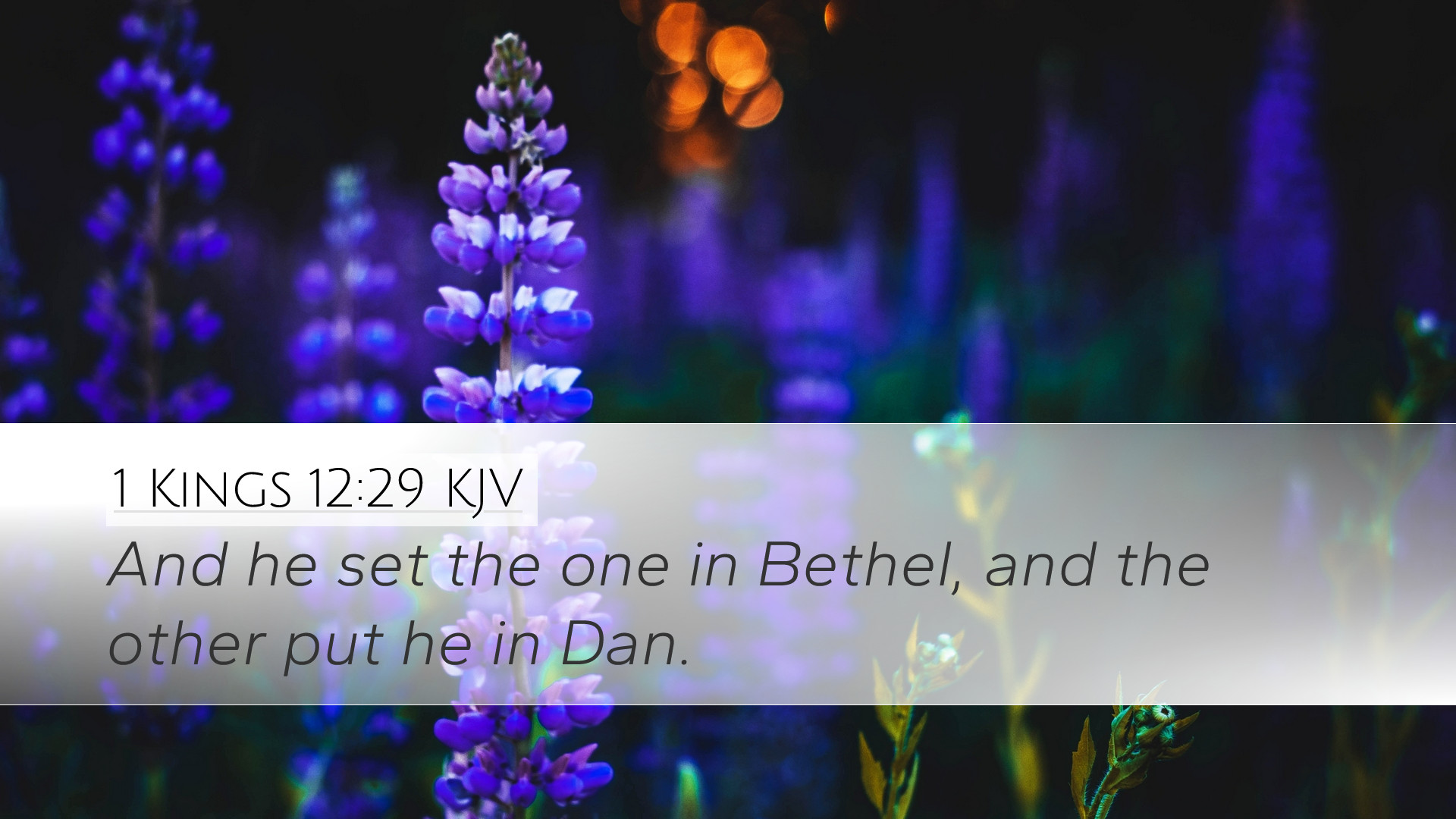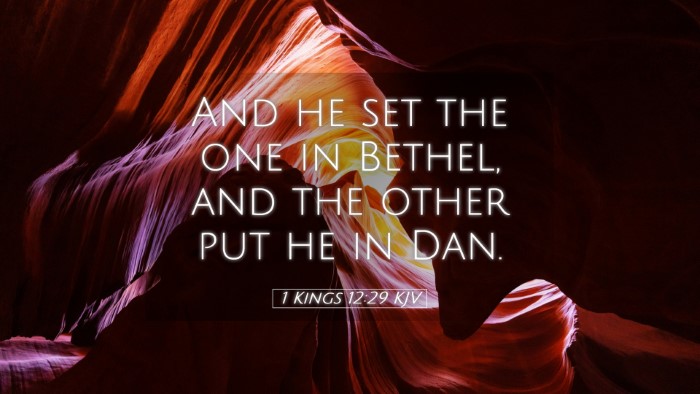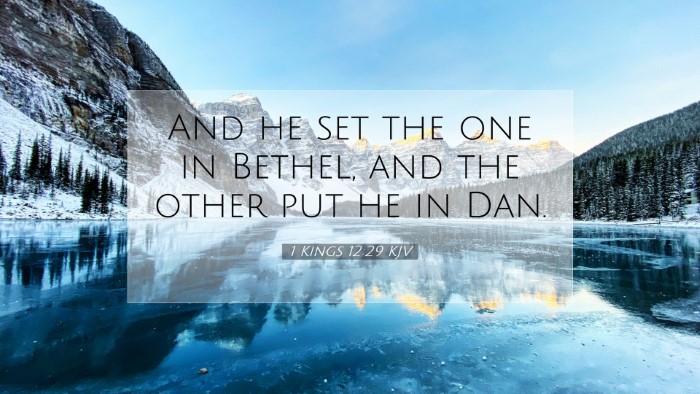Commentary on 1 Kings 12:29
Verse Context: 1 Kings 12:29 states, "And he set the one in Bethel, and the other put he in Dan." This verse marks a significant turning point in the history of Israel as it highlights the establishment of idol worship in the northern kingdom by Jeroboam.
Historical Background
After the death of Solomon, Israel faced a political divide. Jeroboam was made king of the ten northern tribes. Fearing that his subjects would return to Jerusalem for worship, he established two golden calves as alternative sites of worship, one in Bethel and the other in Dan.
The Significance of Bethel and Dan
Both locations were historically significant: Bethel was a principal site of worship and had ties to Abraham, while Dan was located in the northernmost region. By choosing these locations, Jeroboam sought to establish a new religious identity separate from Jerusalem. This decision was both political and religious, aiming to consolidate his power while also creating a new form of worship.
Theological Implications
- Apostasy: Jeroboam's actions set a precedent for apostasy among the people of Israel. By introducing idolatry, he moved the nation further away from the worship of Yahweh.
- Leadership and Influence: Jeroboam's fear of losing followers illustrates the impact of political leadership on spiritual practices. A leader's decisions can profoundly influence the faith and direction of a nation.
- The Nature of Worship: The choice to create golden calves reflects a misunderstanding of the nature of God and true worship. It highlights the temptation to adapt worship to cultural preferences instead of adhering to divine commandments.
Insights from Public Domain Commentaries
Matthew Henry's Commentary
Matthew Henry emphasizes the gravity of Jeroboam's decision, pointing out that setting these idols in Bethel and Dan was a direct rebellion against God's command. He notes that Jeroboam's fear led to a compromise in faith, showcasing the peril of letting human anxiety dictate spiritual direction.
Albert Barnes' Commentary
Albert Barnes elaborates on the significance of the locations chosen by Jeroboam. He argues that by establishing places of idol worship, Jeroboam sought to undermine Jerusalem’s authority and the legitimacy of the temple. Furthermore, Barnes highlights that this incident illustrates the dangers of pragmatism over principle in leadership.
Adam Clarke's Commentary
Adam Clarke provides a thorough analysis of the sociopolitical context, suggesting that Jeroboam’s actions stemmed from a desire to maintain power and control over the tribes. He discusses how the establishment of these high places not only led to idolatry but also set in place a legacy of division and conflict that would affect Israel for generations.
Conclusion
The passage in 1 Kings 12:29 stands as a solemn warning to both leaders and believers. The choice to deviate from God's commands for the sake of political gain or fear leads not only to personal spiritual decline but can also set a disastrous course for the community of faith. It calls for introspection among leaders regarding the weight of their decisions and their long-term impact on the worship and beliefs of their people.


